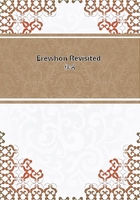
第52章
Professor Hanky then went up into the pulpit, richly but soberly robed in vestments the exact nature of which I cannot determine.
His carriage was dignified, and the harsh lines on his face gave it a strong individuality, which, though it did not attract, conveyed an impression of power that could not fail to interest. As soon as he had given attention time to fix itself upon him, he began his sermon without text or preliminary matter of any kind, and apparently without notes.
He spoke clearly and very quietly, especially at the beginning; he used action whenever it could point his meaning, or give it life and colour, but there was no approach to staginess or even oratorical display. In fact, he spoke as one who meant what he was saying, and desired that his hearers should accept his meaning, fully confident in his good faith. His use of pause was effective.
After the word "mistake," at the end of the opening sentence, he held up his half-bent hand and paused for full three seconds, looking intently at his audience as he did so. Every one felt the idea to be here enounced that was to dominate the sermon.
The sermon--so much of it as I can find room for--was as follows:-"My friends, let there be no mistake. At such a time, as this, it is well we should look back upon the path by which we have travelled, and forward to the goal towards which we are tending.
As it was necessary that the material foundations of this building should be so sure that there shall be no subsidence in the superstructure, so is it not less necessary to ensure that there shall be no subsidence in the immaterial structure that we have raised in consequence of the Sunchild's sojourn among us.
Therefore, my friends, I again say, 'Let there be no mistake.'
Each stone that goes towards the uprearing of this visible fane, each human soul that does its part in building the invisible temple of our national faith, is bearing witness to, and lending its support to, that which is either the truth of truths, or the baseless fabric of a dream.
"My friends, this is the only possible alternative. He in whose name we are here assembled, is either worthy of more reverential honour than we can ever pay him, or he is worthy of no more honour than any other honourable man among ourselves. There can be no halting between these two opinions. The question of questions is, was he the child of the tutelary god of this world--the sun, and is it to the palace of the sun that he returned when he left us, or was he, as some amongst us still do not hesitate to maintain, a mere man, escaping by unusual but strictly natural means to some part of this earth with which we are unacquainted. My friends, either we are on a right path or on a very wrong one, and in a matter of such supreme importance--there must be no mistake.
"I need not remind those of you whose privilege it is to live in Sunch'ston, of the charm attendant on the Sunchild's personal presence and conversation, nor of his quick sympathy, his keen intellect, his readiness to adapt himself to the capacities of all those who came to see him while he was in prison. He adored children, and it was on them that some of his most conspicuous miracles were performed. Many a time when a child had fallen and hurt itself, was he known to make the place well by simply kissing it. Nor need I recall to your minds the spotless purity of his life--so spotless that not one breath of slander has ever dared to visit it. I was one of the not very many who had the privilege of being admitted to the inner circle of his friends during the later weeks that he was amongst us. I loved him dearly, and it will ever be the proudest recollection of my life that he deigned to return me no small measure of affection."My father, furious as he was at finding himself dragged into complicity with this man's imposture, could not resist a smile at the effrontery with which he lowered his tone here, and appeared unwilling to dwell on an incident which he could not recall without being affected almost to tears, and mere allusion to which, had involved an apparent self-display that was above all things repugnant to him. What a difference between the Hanky of Thursday evening with its "never set eyes on him and hope I never shall,"and the Hanky of Sunday morning, who now looked as modest as Cleopatra might have done had she been standing godmother to a little blue-eyed girl--Bellerophon's first-born baby.
Having recovered from his natural, but promptly repressed, emotion, the Professor continued:-"I need not remind you of the purpose for which so many of us, from so many parts of our kingdom, are here assembled. We know what we have come hither to do: we are come each one of us to sign and seal by his presence the bond of his assent to those momentous changes, which have found their first great material expression in the temple that you see around you.
"You all know how, in accordance with the expressed will of the Sunchild, the Presidents and Vice-Presidents of the Musical Banks began as soon as he had left us to examine, patiently, carefully, earnestly, and without bias of any kind, firstly the evidences in support of the Sunchild's claim to be the son of the tutelar deity of this world, and secondly the precise nature of his instructions as regards the future position and authority of the Musical Banks.